This month, we’ve got plenty to talk about: our upcoming annual Ending Age-Related Diseases conference, a large batch of new youtube episodes, and a great amount of research on everything from stem cells to supplements. Here’s what’s happened in July.
LEAF News
Interviews
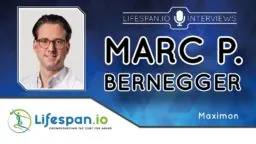 The Rising Importance of Crypto in Aging Research: Marc P. Bernegger talks about how the cryptocurrency world is colliding with aging research and life extension and could change how research gets funded.
The Rising Importance of Crypto in Aging Research: Marc P. Bernegger talks about how the cryptocurrency world is colliding with aging research and life extension and could change how research gets funded.
George Church on Gene Therapies and Longevity: This prolific researcher and entrepreneur is involved in dozens of startups, and we interviewed him on topics ranging from the current state of gene therapy to his recent attempt to auction off his genome.
Rejuvenation Roundup Podcast
Ryan O’Shea of Future Grind hosts this month’s podcast, showcasing the events and research discussed here.
Advocacy and Analysis
The Enormous Economic Benefits of Targeting Aging: Using Peter Pan, Wolverine, and a powerful economic model, a trio of prominent scientists argues that slowing aging can bring gargantuan economic benefits – an order of magnitude bigger than previously thought.
 Defeating Aging With Aubrey de Grey and Michael Rae: We recently caught up with Dr. Aubrey de Grey and Michael Rae from SENS Research Foundation (SRF) in order to ask them a couple of questions about the rejuvenation biotechnology field.
Defeating Aging With Aubrey de Grey and Michael Rae: We recently caught up with Dr. Aubrey de Grey and Michael Rae from SENS Research Foundation (SRF) in order to ask them a couple of questions about the rejuvenation biotechnology field.
Anxious After Watching “Old”? Relax!: Elena Milova explains why, while aging is terrifying, M. Night Shymalan’s latest movie is nothing to be afraid of.
Education
Challenging the Alzheimer’s Amyloid Hypothesis: This month’s Journal Club was on a new study that challenges the amyloid hypothesis of Alzheimer’s disease with new human data.
Niacin: Recent human trials have shed new light on the possible role of niacin in addressing mitochondrial dysfunction and aging.
 Arginine: Arginine, also known as L-arginine, is an amino acid, a building block used to make proteins, that plays an important role in regulating blood flow. There is some suggestion that nitric oxide signaling might also have a role in aging, mainly due to inflammation.
Arginine: Arginine, also known as L-arginine, is an amino acid, a building block used to make proteins, that plays an important role in regulating blood flow. There is some suggestion that nitric oxide signaling might also have a role in aging, mainly due to inflammation.
Alpha-lipoic Acid: This coenzyme is involved in fundamental metabolism, and it has been shown to have benefits regarding conditions that cause oxygen deprivation and to ameliorate the damage caused by reactive oxygen species.
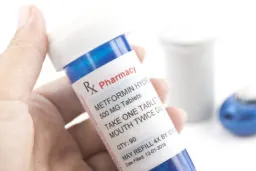 Metformin: Many researchers, including Dr. Nil Barzilai, have found evidence that this drug, which is commonly used to treat diabetes, may slow down aging.
Metformin: Many researchers, including Dr. Nil Barzilai, have found evidence that this drug, which is commonly used to treat diabetes, may slow down aging.
Resveratrol: Found in grapes and red wine, this compound has long been theorized to affect aging. It has shown various positive effects in multiple studies.
 Magnesium: This mineral is commonly taken as a supplement, and magnesium deficiency has been shown to lead to hypertension and diabetes.
Magnesium: This mineral is commonly taken as a supplement, and magnesium deficiency has been shown to lead to hypertension and diabetes.
Research Roundup
Gut Bacteria Strongly Influence the Aging Genome in Flies: In fruit flies, an oft-studied species, most of the genetic changes associated with increasing age disappear in the absence of gut bacteria.
 Caloric Restriction Attenuates Immunosenescence: In mice, long-term caloric restriction can attenuate age-related immunosenescence on par with antibody-mediated clearance of senescent T-cells.
Caloric Restriction Attenuates Immunosenescence: In mice, long-term caloric restriction can attenuate age-related immunosenescence on par with antibody-mediated clearance of senescent T-cells.
Ginseng Compound Reduces Senescent Marker in Humans: The ginseng derivative Rg1 decreases the cellular senescence marker p16INK4a in fitness-trained men 24 hours after exercise.
 Testosterone Restores Brain Function in Old Male Rats: Testosterone supplementation ameliorates age-related brain dysfunction in male rats, and the reason is apparently due to its effects on the mitochondria.
Testosterone Restores Brain Function in Old Male Rats: Testosterone supplementation ameliorates age-related brain dysfunction in male rats, and the reason is apparently due to its effects on the mitochondria.
Niacin Tested Against Parkinson’s Disease: Scores on a critical function test were improved in Parkinson’s patients who took niacin for a year, as did many secondary measures of function.
 Castration Lengthens Lifespan of Sheep by Altering Androgens: Castration makes male sheep live longer, and researchers have used genomic data to get a basic understanding of the mechanism behind this longevity.
Castration Lengthens Lifespan of Sheep by Altering Androgens: Castration makes male sheep live longer, and researchers have used genomic data to get a basic understanding of the mechanism behind this longevity.
Senolytics Improve Spinal Cord Recovery in Mice: Research has shown that the senolytic navitoclax (ABT-263) helps mice heal from spinal cord injuries, giving them some of the regenerative abilities of zebrafish.
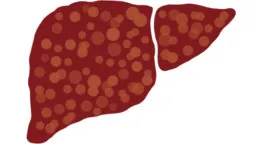 A Link Between Telomere Attrition and Fibrosis: A study has shown a link between a reduction in telomerase reverse transcriptase (TERT), the gene that allows for telomere maintenance, and the development of myofibroblasts, cells that are a part of organ fibrosis.
A Link Between Telomere Attrition and Fibrosis: A study has shown a link between a reduction in telomerase reverse transcriptase (TERT), the gene that allows for telomere maintenance, and the development of myofibroblasts, cells that are a part of organ fibrosis.
NMN Enhances Aerobic Capacity in Amateur Runners: While not every metric was improved, a clinical trial of endurance runners found nicotinamide mononucleotide (NMN) to increase several measures of aerobic capacity.
 Engineering Cells to Avoid Immune Detection in Transplants: Gene editing can make stem cells invisible to the immune system, making it possible to carry out cell therapy transplants without suppressing the patients’ immune response.
Engineering Cells to Avoid Immune Detection in Transplants: Gene editing can make stem cells invisible to the immune system, making it possible to carry out cell therapy transplants without suppressing the patients’ immune response.
Loss of Peptide Not Amyloid Plaques a New Alzheimer’s Target: A recent study challenges the popular amyloid hypothesis that has dominated Alzheimer’s research for decades, as it shows that amyloid accumulation may be the consequence, not the cause, of Alzheimer’s.
 HDAC Inhibitors Linked to Cellular Senescence: Research has shown that inhibiting histone deacetylases (HDACs), an approach used for treating cancer and other diseases, can lead to cellular senescence, one of the hallmarks of aging.
HDAC Inhibitors Linked to Cellular Senescence: Research has shown that inhibiting histone deacetylases (HDACs), an approach used for treating cancer and other diseases, can lead to cellular senescence, one of the hallmarks of aging.
Enriched Environments Youthen the Brains of Mice: A study published in Nature Communications has shown that an environment rich in stimuli changes the epigenetics of the mouse hippocampus, making the brains of aged mice more like those of young mice.
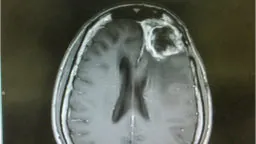 Senescent Cells, p65, and a Possible Treatment for Cancer: A report in the Journal of Cell Science has outlined different stages of cellular senescence alongside a mechanism that reverses it, along with a potential new treatment for glioblastoma.
Senescent Cells, p65, and a Possible Treatment for Cancer: A report in the Journal of Cell Science has outlined different stages of cellular senescence alongside a mechanism that reverses it, along with a potential new treatment for glioblastoma.
Teasing Apart the Effects of Aging and COVID-19: Researchers have used a big data approach to disentangle cellular and physiological changes that are specific to COVID-19 from those caused by aging.
 A Correlation Between Fatty Acids and Longevity: A study published in the American Journal of Clinical Nutrition has shown that a model built on the concentration of four fatty acids predicts mortality in older people at least as well as a model that uses smoking and diabetes.
A Correlation Between Fatty Acids and Longevity: A study published in the American Journal of Clinical Nutrition has shown that a model built on the concentration of four fatty acids predicts mortality in older people at least as well as a model that uses smoking and diabetes.
Memory Restored in Aged Mice by Modifying the Brain’s ECM: The brain’s extracellular matrix (ECM) changes with age, negatively impacting memory, but modifying the components of the brain ECM can revitalize memory in mice by affecting how their synapses work.
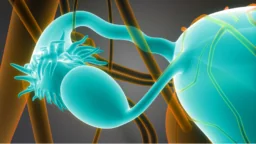 Stem Cell Ovaries Now Functional in Mice: The entire ovarian niche of mice can now be generated in vitro from stem cells, as a study recently published in Science shows.
Stem Cell Ovaries Now Functional in Mice: The entire ovarian niche of mice can now be generated in vitro from stem cells, as a study recently published in Science shows.
Counteracting age-related VEGF signaling insufficiency promotes healthy aging and extends life span: Vascular endothelial growth factor promotes the formation of blood vessels, and this paper demonstrates that its age-related insufficiency prevents blood from properly reaching some organs; restoring it allows these organs to function in a more youthful way.
Skeletal Muscle Specific Calpastatin Overexpression Mitigates Muscle Weakness in Aging and Extends Lifespan: The factor calpain has been shown to cause muscle weakness with aging, and calpastatin counteracts its effects.
Extrapolating Long-term Event-Free and Overall Survival With Dapagliflozin in Patients With Heart Failure and Reduced Ejection Fraction: The findings of this Phase 3 trial show that dapagliflozin provides clinically meaningful gains in extrapolated event-free and overall survival.
SGLT2 inhibition reduces cellular senescence in the diabetic kidney by promoting ketone body-induced NRF2 activation: Dapaglifozin has also been shown to reduce cellular senescence and oxidative stress, thus preventing the progression of diabetic kidney disease.
Non-steroidal Anti-inflammatory Drug Use and Risk of Age-Related Macular Degeneration in the California Teachers Study: NSAIDs were not shown to raise the risk of AMD. Instead, aspirin and COX-2 users were shown to have a reduced risk of this disease.
Transcranial Near Infrared Light Stimulations Improve Cognition in Patients with Dementia: The tNIR light treatments demonstrated safety and positive cognitive improvements in patients with dementia, and the developed treatment protocol can be conveniently used at home.
High-Intensity Interval Training in Older Adults: a Scoping Review: This review of previously published papers shows that, while the subject has not been extensively studied, HIIT appears to be more beneficial for older people than continuous, moderate-intensity workouts.
Increasingly capable at the ripe old age? Cognitive abilities from 2004 to 2013 in Germany, Spain, and Sweden: Improvements in older adults’ cognitive abilities were found in all three countries. The researchers suggest that this may indicate educational improvements or increasingly stimulating living conditions.
Gut-microbiota-targeted diets modulate human immune status: This study determined how two microbiota-targeted dietary interventions, plant-based fiber and fermented foods, influence the human microbiome and immune system in healthy adults.
Dietary supplementation with sulforaphane ameliorates skin aging through activation of the Keap1-Nrf2 pathway: Collagen deposition was improved with sulforaphane treatment in young mice and structurally, significantly improved in old mice.
Nicotinamide Mononucleotide Combined With Lactobacillus Fermentum TKSN041 Reduces Photoaging Damage in Mice: The combination of NMN and this bacteria repaired this damage through activation of the AMPK signaling pathway.
News Nuggets
 Senolytics Show Positive Results in Phase 1 Clinical Trial: UNITY Biotechnology reports success in patients with age-related macular degeneration and diabetic macular edema.
Senolytics Show Positive Results in Phase 1 Clinical Trial: UNITY Biotechnology reports success in patients with age-related macular degeneration and diabetic macular edema.
PulseChain Airdrop Raises $20m for SENS: This cryptocurrency donation system has raised a substantial amount of money for this well-known longevity-promoting organization, providing it with four times its annual income.
 New Patch Uses Ultrasound Array to Monitor Blood Flow: Researchers have developed a skin patch that allows realtime blood flow monitoring in a non-invasive way. This flexible polymer patch sticks to the skin and can monitor the flow of blood in vessels up to 14 centimeters deep into the body.
New Patch Uses Ultrasound Array to Monitor Blood Flow: Researchers have developed a skin patch that allows realtime blood flow monitoring in a non-invasive way. This flexible polymer patch sticks to the skin and can monitor the flow of blood in vessels up to 14 centimeters deep into the body.




